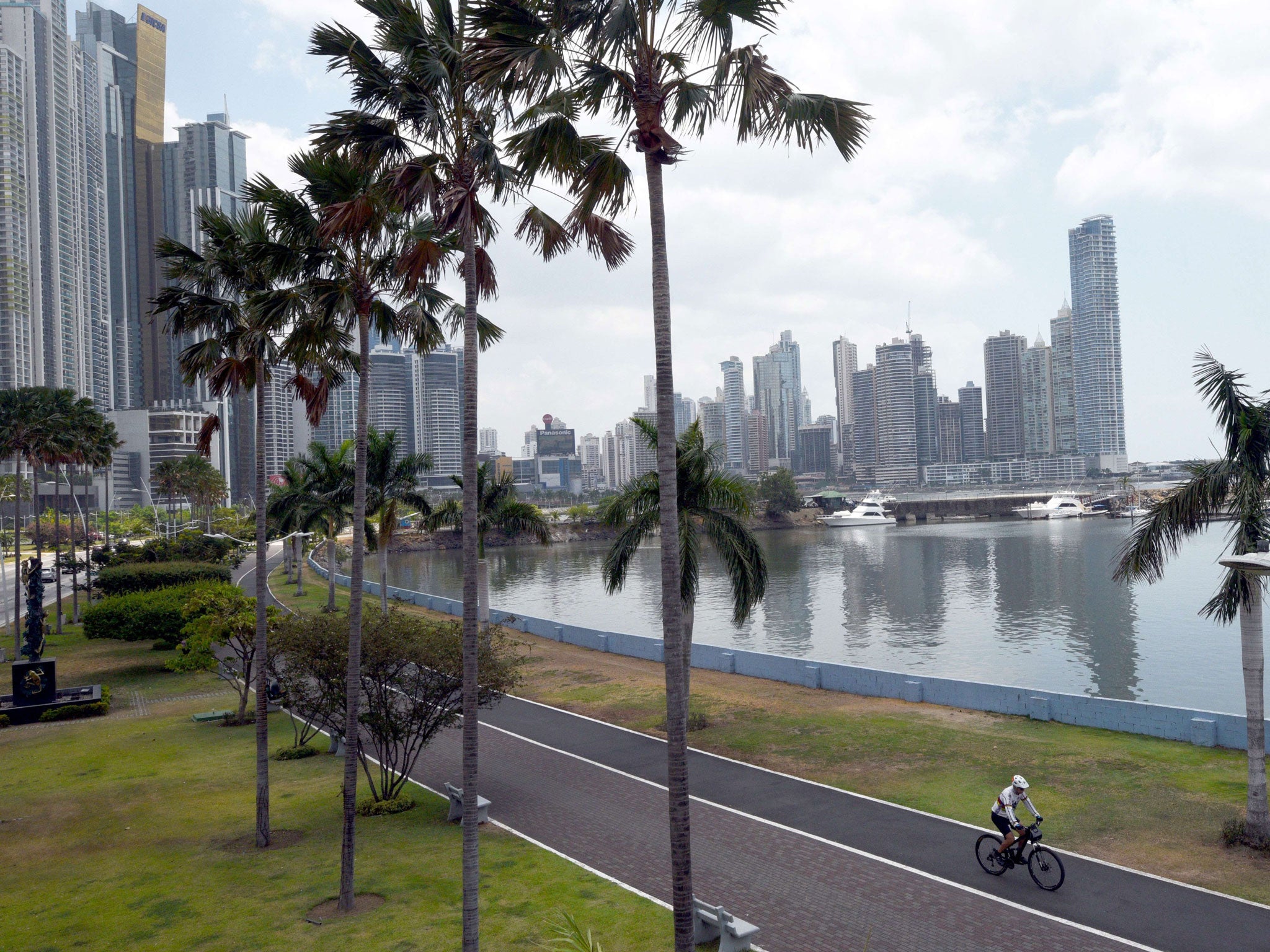Panama Papers: the world's top tax havens
According to the Tax Justice Network, considered as a whole then the UK and its dependencies are the worst-offending tax haven in the world

Your support helps us to tell the story
From reproductive rights to climate change to Big Tech, The Independent is on the ground when the story is developing. Whether it's investigating the financials of Elon Musk's pro-Trump PAC or producing our latest documentary, 'The A Word', which shines a light on the American women fighting for reproductive rights, we know how important it is to parse out the facts from the messaging.
At such a critical moment in US history, we need reporters on the ground. Your donation allows us to keep sending journalists to speak to both sides of the story.
The Independent is trusted by Americans across the entire political spectrum. And unlike many other quality news outlets, we choose not to lock Americans out of our reporting and analysis with paywalls. We believe quality journalism should be available to everyone, paid for by those who can afford it.
Your support makes all the difference.The world's elite move their wealth through secretive tax havens to dodge billions in tax, according to 11 million documents leaked from Panama-based law firm Mossack Fonseca by an unknown individual.
Panama itself is just one of scores of tax havens worldwide, from Barbados to Bahrain. But, according to one campaign group, the biggest tax haven in the world is right here in the United Kingdom.
A tax haven is a state or territory where taxes are levied at a low or non-existent rate. Benefiting from secretive financial regimens, companies and wealthy individuals can use these nations to store money and move it across borders without paying any tax.
For example, there are more registered businesses than people in the Cayman Islands, where companies pay no direct tax. The tiny islands have a population of just 60,000, but play host to around $2 trillion in banking assets, or one-fifteenth of the global total.
Many tax havens also appeal to private individuals. In the mid-20th century, inheritance tax in the UK on amounts over £1 million was 80 per cent. In Jersey, it was a rather more modest zero per cent, and drove of rich Britons began to move their wealth to the island.
To this day, there is no inheritance, capital gains or standard corporate tax in Jersey. The island dependency now contains $5bn worth of assets per square mile of land.
Rather than physically relocating, businesses and wealthy individuals tend to use an offshore trust or company, becoming 'tax resident' in a country with lax tax laws and generous international tax treaties.
Dodging tax can involve legally questionable activity, and many companies and super-rich individuals prioritise secrecy. Top tax havens such as Bermuda and Switzerland make it extremely difficult, if not illegal, for foreign investigators to examine financial affairs within the haven.
In Switzerland, for example, it took until the 1990s for bankers to release gold stashed by the Nazi government. A 2014 Channel 4 documentary further alleged that hundreds of millions of pounds of Hitler's private wealth vanished into the Swiss banking system without a trace.
Panama is a typical haven, combining restrictive financial secrecy laws with a total lack of corporation tax. As well as providing a notional home for 350,000 "International Business Companies", it acts as a conduit for 'dirty' drug money flowing out of South America.
The Tax Justice Network (TJN) publishes an annual "Financial Secrecy Index", listing 80 or so tax havens "according to their secrecy and the scale of their offshore financial activities". According to their rankings, in 2015 the three worst offenders were Switzerland, Hong Kong and the USA.
The United Kingdom itself is 15th on the TJN rankings. While there are more secretive nations, the City of London provides ample opportunity for companies to dodge tax, and the scale of capital flow through London means the UK ranks highly as a global centre for financial secrecy.
But TJN says the UK would be ranked as the worst offender in the world if considered along with the three Crown Dependencies (Jersey, Guernsey and the Isle of Man) and the 14 Overseas Territories (including notorious tax havens such as Bermuda, the Cayman and Virgin islands).
In their 2015 Index, TJN state: "Overall, the City of London and these offshore satellites constitute by far the most important part of the global offshore world of secrecy jurisdictions."
Join our commenting forum
Join thought-provoking conversations, follow other Independent readers and see their replies
Comments